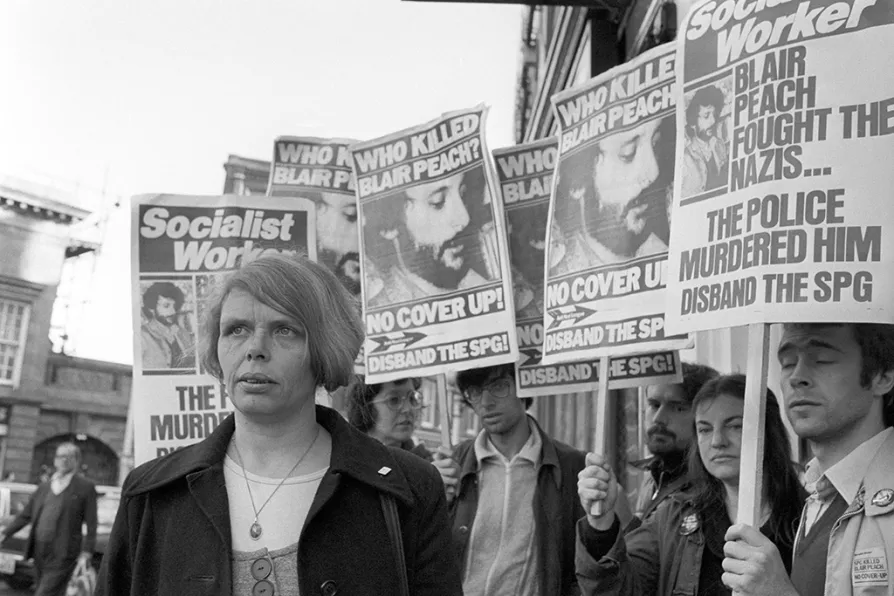Cops who killed Blair Peach 'escaped justice due to police spying,' inquiry hears

 Celia Peach (now Stubbs) and demonstrators staging a silent protest outside Fulham Town Hall in 1979
Celia Peach (now Stubbs) and demonstrators staging a silent protest outside Fulham Town Hall in 1979
POLICE spied on the partner of a protester killed by officers in order to stay “one step ahead” of her campaign for justice, a public inquiry heard yesterday.
Celia Stubbs was spied on for 20 years following the death of her partner Blair Peach at a protest against the National Front in Southall in 1979.
His death at the hands of riot officers prompted one of the most notorious police cover-ups in modern policing history. In the 42 years since his death, no officer has ever been charged.
Similar stories

BEN CHACKO reports on the struggles against sexism, racism and the brutish British state that featured at Matchwomen’s Festival this year

The murder of an anti-racist protester in 1979 by a special unit of the Met Police was followed by a gruelling battle to win answers about what happened on that tragic day. Now material related to that campaign is available to the public and researchers for the first time at the Bishopsgate Institute. INDIANNA PURCELL reports












